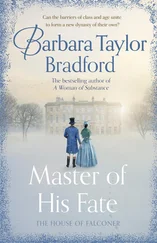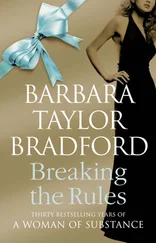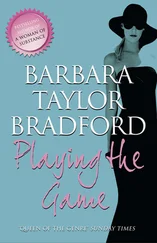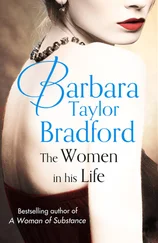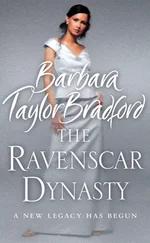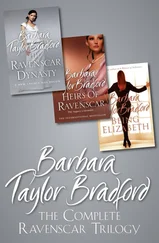Earlier that morning he had contemplated walking to the Connaught Hotel; now he was relieved he had changed his mind and had ordered his car up from the garage. It was sizzling out here, and oppressive, hardly the kind of weather for sauntering through the busy streets of Mayfair.
His chauffeur had spotted him the instant he had emerged from the building and was already standing stiffly to attention next to the back passenger door.
‘Sir Ronald,’ he said, inclining his head respectfully, and opened the door wider.
‘Thank you, Pearson,’ Sir Ronald responded with a half smile, stepping into the burgundy coloured Rolls-Royce. ‘The Connaught, please.’
The car pulled away from the kerb and he settled back against the seat and stared absently ahead. He was looking forward to lunching with Paula and Michael. He had not seen her for several weeks and his son had been in New York for over two months and he had missed them both … in different ways.
His son was his good right hand, his alter ego, his heir apparent, and his favourite. He loved his younger son, Mark, very much; but Michael had a special hold on his heart. He was never quite sure why this was so. How could one explain these things? Sometimes he thought it was because his son was very much like his own father had been. Not that Michael looked anything at all like David Kallinski, being so much more Anglo-Saxon in appearance with his fair complexion and blondish hair. It had to do with a similarity of character and personality, and just as Sir Ronald had enjoyed a marvellous camaraderie with his father until the day of David’s death, so did he now with his son. It had been thus ever since the boy’s childhood, in fact, and he noticed Michael’s absences most acutely these days, was frequently lonely when his first born was travelling.
As for Paula, she was the daughter he had never had, or rather, the surrogate for the daughter who had not lived through her childhood. Miriam, their second child, born after Michael and before Mark, would have been thirty-four this year, if she had not died of encephalitis at the age of five. How they had grieved, he and Helen; they had not understood why she had been taken from them at such a tender age. ‘God works in mysterious ways, His wonders to perform,’ his mother had said to them at the time, and only in old age had he come to terms with that extraordinary belief.
Paula was the smartest woman he had ever known, except for Emma, and he appreciated her sharp and clever mind, her quickness, her business acumen. But she could also be very female at times and he missed her femininity as much as he relished his role as her sounding board and, on occasion, her adviser. He had a lot of admiration for Paula. She was a good mother as well as a successful executive. Hers was a hard road and she trod it most adroitly, rarely ever stumbled.
He wished his daughter-in-law were half as practical and down to earth as she was. The trouble with Valentine was that she lived in another world. She was airy fairy, a bit flighty, and forever discontented. Nothing was ever enough for her, or ever right , and he understood only too well Michael’s feelings. His son’s frustration had grown to monumental proportions over the years and the inevitable explosion, when it had come, had been violent. He had not been surprised. He had never approved of Valentine as a wife for Michael, not because she was a shiksa – differences in religion scarcely mattered to him – but because she was so shallow, unworthy really. He had always known this, but how did one tell such a thing to a young man in love? In any event, the divorce agreement had been concluded finally, after much bitter wrangling and the exchange of vast amounts of money. Michael, most fortunately, had succeeded in getting what he wanted – a decree nisi and joint custody of his three children, the boy, Julian, and the two younger girls, Arielle and Jessica.
A smile softened Sir Ronald’s stern face as he thought of his little granddaughters. If only Helen had lived to see them, it would have made her so happy. But his wife had died eight years ago. He had never stopped missing her, and when he had been given his knighthood by Harold Wilson in 1976 his joy had been tempered by sadness because Helen was no longer with him.
This singular honour had come as a genuine surprise to him. He had never asked for nor sought a title, nor had he tried to buy one by making heavy donations to charity. He was philanthropic, and he had his favourite causes, had contributed generously to medical research and the arts, but this had been done discreetly and without fanfare.
To be on the Prime Minister’s honours list was flattering, and especially since everyone knew the title had been earned and was therefore deserved. Kallinski Industries was one of the largest and most successful conglomerates in Great Britain, and as such it not only provided much-needed jobs for thousands but was a major exporter of British goods abroad. Ronald Kallinski had devoted his life to bringing the company to its present dominant position, and he was proud of his accomplishments. So was his country apparently, since this was the reason the knighthood had been bestowed upon him.
Sir Ronald was not the first Yorkshire Jew to be knighted; others had been singled out by grateful prime ministers over the years … men like Montague Burton, and Rudolph Lyons. But nevertheless he prized the honour, as if he had been the first, and most especially when he contemplated the Kallinski family’s early history, thought of his grandfather Abraham fleeing Russia and the pogroms in the last century, settling in the ghetto in Leeds, and eventually opening his tailoring shop in North Street. That little factory turning out piecework for the John Barran company – the first ready-made clothiers to start in Leeds after Singer invented the sewing machine – had been the beginning, the nucleus of the billion-pound empire that Kallinski Industries was today.
On the morning of his investiture his one regret had been that Helen, Abraham, his father David, Emma and Blackie had not been present to share his pride and happiness. The four old-timers in particular would have appreciated the significance of the ceremony at Buckingham Palace, truly understanding how far the Kallinskis had risen since Abraham, the young refugee from Kiev, had first set foot on English soil at Hull in 1880.
The Rolls-Royce came to a sudden stop in Carlos Place.
Sir Ronald shook off his thoughts, leaned forward, addressed his chauffeur: ‘Please pick me up around two-thirty, Pearson,’ he said as the uniformed doorman outside the Connaught Hotel stepped up to the car, opened the door for him, helped him alight.
They ‘Sir Ronalded’ him to death as he went from the front steps to the dining room, and a faint smile touched his eyes as he was shown to the table his son had reserved. Five years ago he had wondered how he would ever get used to being addressed by his title. But he had – and in no time at all.
After he had ordered a dry sherry, he took a sip of the iced water a waiter had placed before him, then sat back to wait for Paula and Michael.
Sir Ronald did a double take.
Paula and his son were heading across the restaurant in his direction, and she looked so much like Emma that it was quite amazing.
He realized, as she drew closer, that she was sporting a new hairdo, and that it was this which underscored her already-pronounced similarity to her grandmother. Her dark glossy hair had been cut short in a sort of sleek bob. It was chic and obviously of the moment, and yet to him it had the look of the 1930s. It brought to mind the film stars of his youth … and the elegant Emma he had known and admired as a boy.
Читать дальше


